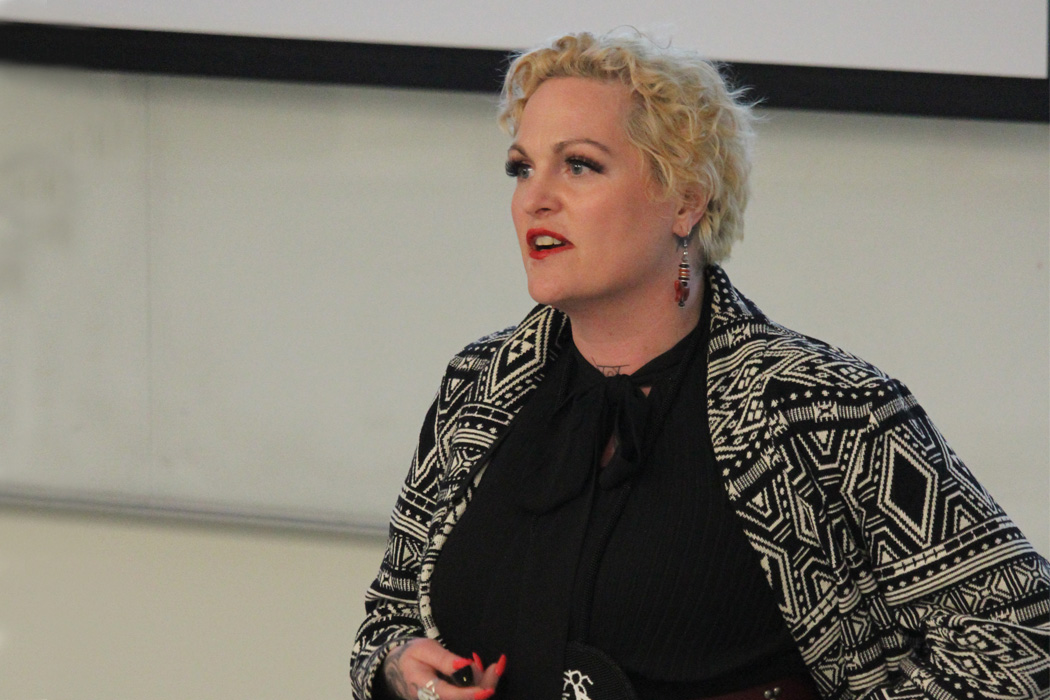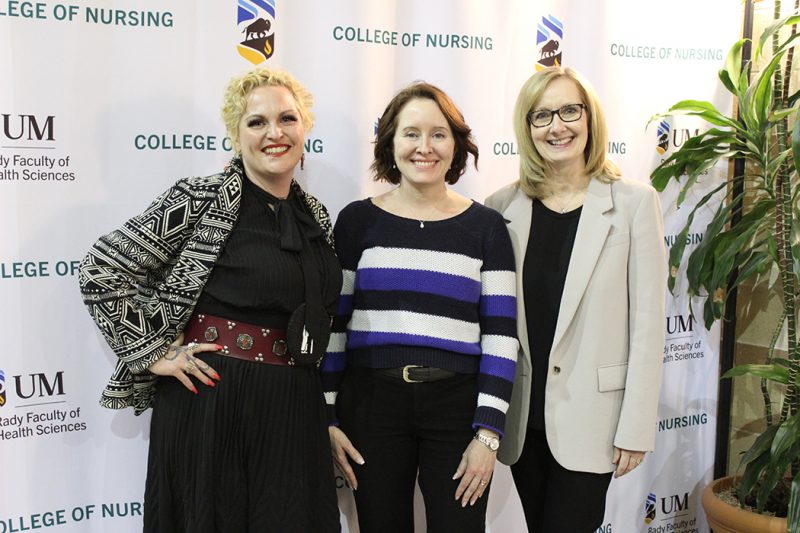
Stephanie Van Haute
Health research should distinguish Indigenous populations, PhD student says
When discussing Indigenous health in Manitoba, researchers and health professionals need to consider the distinctions between First Nations, Inuit, Métis and the urban Indigenous population, a PhD student at the College of Nursing said at a recent conference.
“A pan-Indigenous umbrella is not going to work in the province when we talk about health and health systems planning,” Stephanie Van Haute said.
Van Haute has been a practicing registered nurse for over 20 years and currently works as a patient services director for the Indigenous health program at the Winnipeg Regional Health Authority.
She was one of three speakers at the 14th annual Advanced Practice Nursing (APN) Conference hosted by UM’s Graduate Nursing Students’ Association at the Helen Glass Centre for Nursing at Fort Garry campus on March 20. The conference’s overall theme was on intersectoral collaboration in health care.
At Shared Health, Van Haute, a Métis woman, sits on a disrupting racism working group which aims to reduce harm from the impacts of colonization, including racism, through a broader lens.
“Disrupting racism is a reflexive practice. It’s looking at every narrative that we’ve been given since we were little. It’s integral to the reconciliation process,” she said.
“For those wanting to work with First Nations or Indigenous communities, be humble, start learning the impacts of historical and ongoing colonial efforts that have led to systemic mistrust…and be willing to follow. Indigenous people are the experts in their own health.”
The conference also included presentations by Lisa Merrill, co-chair of Manitoba’s recently established Provincial Clinical Nurse Specialist Network, and Cindy Fehr, CEO for the Nurse Practitioner Association of Manitoba.

(L-R) Stephanie Van Haute, Cindy Fehr and Lisa Merrill
Merrill discussed her experiences with intersectoral collaboration, which began in 2012 on an inner-city prenatal care project with Dr. Maureen Heaman, a UM nursing professor at the time. The project involved Health Sciences Centre, community partners, midwifery, street outreach, public health, primary care and other stakeholders.
“We were recruiting candidates who had risk factors for inadequate prenatal care and the project was designed to reduce barriers to facilitate access to prenatal care,” Merrill said.
“Being my first true exposure to intersectoral collaboration, the important thing I learned is how broad the scope of intersectoral partnerships can be and the positive impact these relationships can have on outcomes.”
Fehr spoke about her experience starting up a nurse practitioner (NP)-led hospital and clinic in Swan Lake, Man. in 2020. Previously, she was working with two internationally trained doctors at two neighbouring primary care clinics and an 18-bed hospital, serving about 3,000 patients in the area.
“After COVID hit, the doctors left and we were told that our clinics and hospital could be shut down if no physicians were recruited. I am so thankful we had a leadership team that didn’t stick to the old ways of just physician-led clinics and listened to new creative ideas, including Manitoba’s first NP-led rural hospital,” Fehr said.
“It allowed us to provide care to the community undisrupted.”
The event was emceed by co-chair Karen Livingston, a student in the administration stream of the college’s master of nursing program. Greetings were given by Dr. Netha Dyck, dean of the College of Nursing, Rady Faculty of Health Sciences and Elder Mary Wilson Lennon, a spiritual healer and knowledge keeper who previously worked with Ongomiizwin – Health Services.
Co-chair Eunice Erhaze, a second-year student in the nursing PhD program, opened the conference with a personalized land acknowledgement.
“As a dedicated health-care professional, I am privileged to live and work on this land. I hold a unique responsibility to not only care for a patient’s physical well-being, but to also uphold values of justice, empathy and inclusivity,” she said.
This was the first APN conference to be held in person since March 2020. About 30 faculty, staff and students attended, with another 25 attending virtually. The conference raised funds for the Manitoba Harm Reduction Network.






